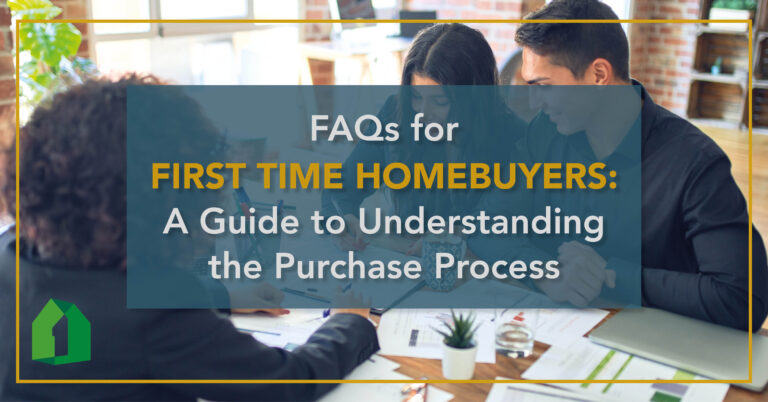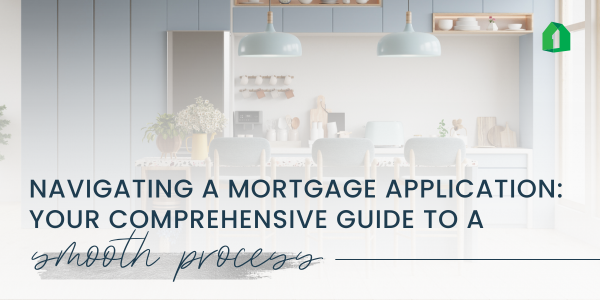
Homebuying can be an exciting and rewarding experience. It can also be an extremely stressful and confusing one – especially if it’s your first time. As a first-time homebuyer, it’s perfectly natural to feel overwhelmed with questions about every step of the process. But don’t fret – we’ve got you covered! In this article, we’ll address some frequently asked questions to help you navigate your homebuying journey with confidence.
What should my mortgage budget be?
This is a crucial first step. Everyone’s financial circumstances are different, but you can form a loose estimate for yourself by factoring your monthly income, expenses, and debts. A common guideline is the 28/36 rule, which suggests a household should spend a maximum of 28% of its gross monthly income on total housing expenses, and no more than 36% on total debt service. Keep in mind that these are general guidelines, and it’s essential to factor in your individual circumstances.
How much money will I need for my down payment?
Your down payment depends on several factors, including loan type, lender requirements, and your financial situation. While a 20% down payment is considered ideal and often recommended to avoid paying private mortgage insurance (PMI), it’s certainly not required, and it’s also not as common as many buyers believe . There are various low-down-payment programs available, such as FHA loans, VA loans (for eligible veterans), and conventional loans with down payment assistance.
Additionally, many lenders offer incentive programs for first-time buyers, those who work in community service roles, and qualifying buyers within certain income levels, which may offer down payment assistance or provide discounted rates, fees, and closing costs that could make your initial investment more affordable. Speaking with a loan officer is a great way to explore what options may be available to you.
What exactly does a real estate agent do, and how do I select one?
A real estate agent should act as your guide and advocate, helping you better understand the market, find prospective homes, negotiate offers, and navigate the various steps of the homebuying journey. They have access to listing databases, market insights, and industry expertise to assist you in making informed decisions. Most importantly, a good agent will be looking out for your best interests throughout the process.
Partnering with the right agent can make a world of difference to your overall experience. It can be helpful to consult with friends and family for recommendations, or, you can research online and read reviews to find someone reputable. Consider speaking with multiple agents to select someone you feel comfortable working with who understands your specific needs – and don’t hesitate to make a change if you don’t feel things are working out!
What’s the difference between an inspection and an appraisal?
An inspection and an appraisal may seem similar, but they serve very different purposes.
- Home Inspection: A home inspection is conducted by a licensed inspector to assess the condition of the property after an offer is accepted but before a closing takes place. Inspectors thoroughly examine the home’s structure, systems, and components to identify any potential issues or repairs needed. The inspection helps you understand the property’s condition before making a purchase decision and creates an opportunity to negotiate repairs or reconsider your purchase altogether if major issues are discovered.
- Property Appraisal: An appraisal is performed by a certified appraiser to determine the property’s market value. The appraiser is a neutral third party, who represents neither the buyer, the seller, or the lender. To estimate the property value, the appraiser evaluates comparable properties, location, condition, and other factors to deliver an unbiased assessment of the home’s worth. Lenders require appraisals to ensure they are not lending more money than the property is worth and thereby protect their investment. This also provides peace of mind to buyers who are seeking to pay fair market value for their home.
How can I estimate property taxes and insurance costs?
Before putting in an offer, it’s important to anticipate what your property taxes might be. To estimate property taxes, you can typically find information on the local government’s website or contact the tax assessor’s office for the current tax rate and assessment value of the property. Multiply the assessed value by the tax rate to estimate your annual property tax.
Insurance costs vary depending on factors such as location, property type, coverage amount, and provider. You can obtain insurance quotes from different companies or consult with an insurance agent for more accurate estimates. Oftentimes, discounts are offered for bundling automotive and homeowners insurance policies together.
It is important to note that both property taxes and homeowners insurance rates can change over time. Expect your taxes to likely go up over the course of your homeownership and consider shopping around for insurance policies periodically.
What are closing costs, and how much should I expect them to be?
Closing costs are the fees and expenses associated with finalizing the home purchase. They typically include items like appraisal fees, loan origination fees, title search and insurance, attorney fees, and prepaid expenses like property taxes and homeowners insurance. Closing costs can range from 2% to 5% of the home’s purchase price. However, the exact amount varies depending on factors such as location, loan type, and specific transaction details.
Your lender will provide a Loan Estimate document that breaks down expected closing costs. Working with a loan officer can help you better understand and prepare for these costs.
A Final Word
The homebuying process can be intimidating for anyone, and that’s especially true for first-time buyers. This guide can help you understand the basics and give some food for thought on your purchase strategy, but each person’s homebuying journey is unique. It’s crucial to seek expert guidance tailored to your specific circumstances.
The information provided in this article is for general informational purposes only and does not constitute professional advice. For personalized guidance regarding your specific situation, consult with a loan officer at First Home Mortgage.
Happy house hunting!


